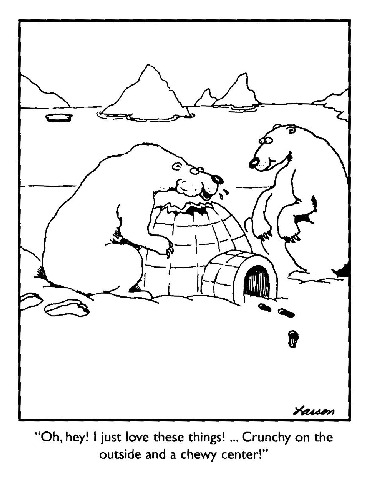There was a boy in my high-school class. My entire graduating class totaled a grand 21, so we all knew each other pretty well. I will just say that this boy got himself the nick-name Eeyore and leave it at that. One day in English we got into a fight about pessimism versus realism that went something like this:
ME: You're such a pessimist.
BOY: Realist.
ME: Pessimist.
BOY: Realist.
ME: Pessimist.
BOY: Realist.
You get the idea. We had similar arguments involving words like naive and optimist.
I like happy things. I like puppies and rainbows and libraries. I hold on to every glimmer of hope I can find, meaning I do my best to consider The Road a happy, hopeful book.
So realizing that the ending of my book was going to be more intense and ambiguous than I originally thought it out to be was strange enough. What was even more strange, though, was how thoroughly I enjoyed writing it.
Maybe it's my tendency to see a lot of hope where there is barely any, but writing my sad(ish) ending rejuvenated rather than depressed me. And getting feedback from my English major friends that basically added up to "I totally loved it, jerk-face" made me nearly giddy with glee. It also made me want to evil laugh like Vincent Price.
Now I am left trying to reconcile this happy, optimistic, humorous real-life side of me with this somber, harsh, somewhat sadistic authorial part of me. And now that its come to my attention, I'm realizing how far back it goes. All the way to high-school, in fact, where my subject matter consisted of a lot of single moms and old men whose wives had left them. When I'm talking with my friends its generally about happy stuff like the Lizzie Bennett Diaries and Chris Evans' butt and I don't know why such a major shift happens when I sit down to write fiction.
So, basically, I've been reading a lot of Dave Barry and Steve Martin to try and see how funny people do it on the printed page. It may not be natural for me, but I want to experiment with and try out some happy, funny stories. Maybe they'll be total crap, but the point is to stretch muscles anyway, right?
Do you have a disparity like this between your real-life and writer selves? If you write funny, how do you do it?
Sarah Allen








My writerly self is much bolder than my chicken real life self. Much thinner too.
ReplyDeleteI think writing can help us understand who we really are. Which may be different from what we think. I'm pretty positive day to day too, but my dark side comes out in writing. And I kind of like it too! No one is completely black or white and I think we're all a mish mash.
ReplyDeleteI think it's a wonderful thing that you have so much joy and hope in your own life, yet when you sit down to write, you can get right into the darker aspects of life. It means that you really can do it all!
ReplyDeletethe-creationofbeauty.blogspot.com
Hi Sarah. I love this post because sometimes the only thing that comes out is funny stuff. Strange but true-- I'm just re-writing the end of my manuscript and it is not funny at all.
ReplyDeleteSarah, sorry I've be absent for a a while but I have been reading your site from time to time...it's a nice break from a hectic schedule to be to sit for even a short time and read my favorite blogs (even when I don't have time to comment on them all). Hope your book is a hit! And I'll bet you'll write some killer "funny stuff".
ReplyDeleteI feel like my voice in writing is just a more intense version of myself. But my author self enjoys pain and sadness a bit more than Madeline does. ;)
ReplyDeleteMy writing voice is a complete polar opposite of who I am.
ReplyDeleteI am: a witty, sometimes wickedly sarcastic, unique individual who is always there for a friend and more than happy to lend a helping hand, a bartener's ear, etc. etc. etc.
My writing voice: is a polar opposite to me. Almost every single story that I've written has something of either a downbeat or ambiguous leaning towards downbeat ending. In fact, I've written only two stories with upbeat endings, both of which are published/soon to be published. I've written one with a downbeat ending that got published as well.
This post totally speaks to me. I was published in my University literary magazine in college and my friends couldn't believe I had written a poem about the horrors of the homeless people throughout the city. I am generally known as being bubbly, thoughtful, optimistic, gullible, and light, but my writing tends towards the darker.
ReplyDelete"Imaginary evil is romantic and varied; real evil is gloomy, monotonous, barren, boring. Imaginary good is boring; real good is always new, marvelous, intoxicating." - Simone Weil
Celina
In real life I have a really off-beat (and often irritating) sense of humor, but for the life of me I can't write humor in my novels.
ReplyDeleteJust doesn't happen.
Weird.
Lauren
lauren-ritz.blogspot.com